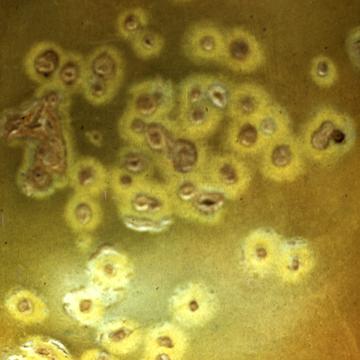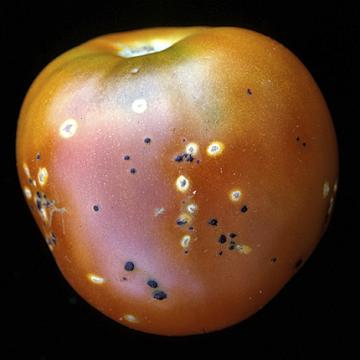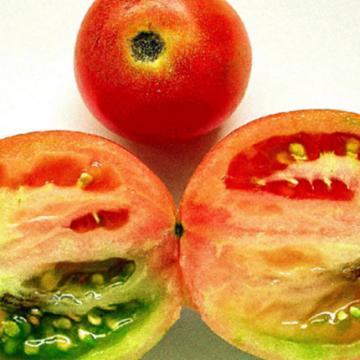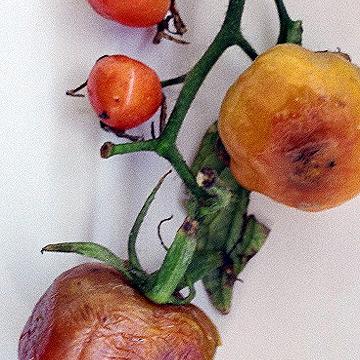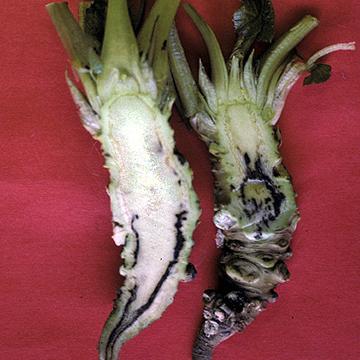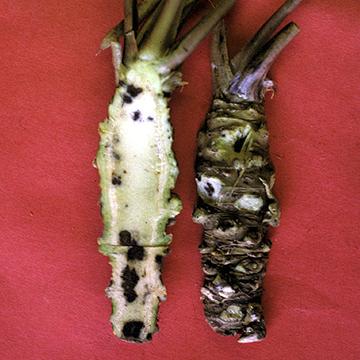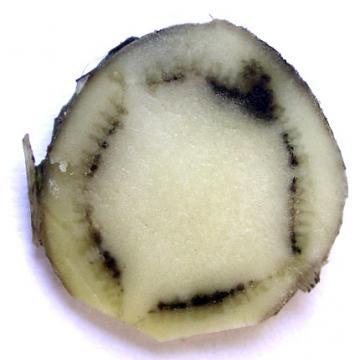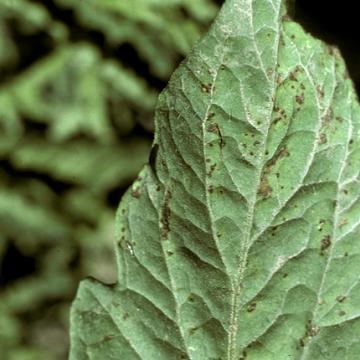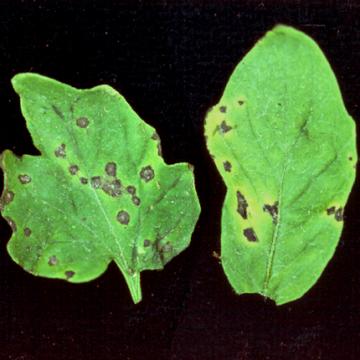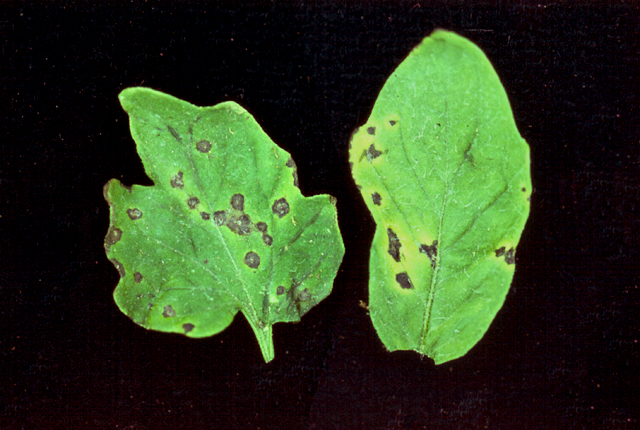DISEASE: Bacterial canker
HOST: Tomato
Close-up of bird's-eye spots on green fruit.
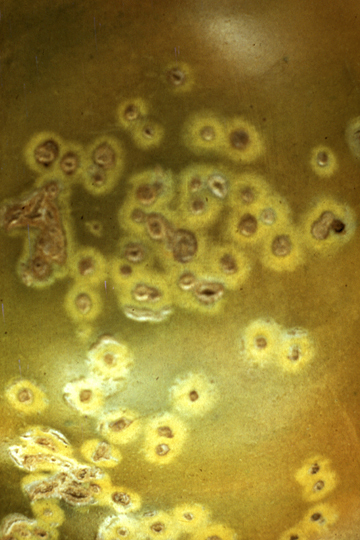
Bacterial canker | Tomato
DISEASE: Bacterial canker
HOST: Tomato (Lycopersicon esculentum)
PATHOGEN: Clavibacter michiganensis subsp. michiganensis
PATHOGEN SYNONYM: Corynebacterium michiganense
SOURCE: A. Hayward
DISEASE: Bacterial canker
HOST: Tomato
Ripe tomato infected with Clavibacter michiganensis subsp. michiganensis, which causes light brown lesions surrounded by white halos, and Pseudomonas syringae pv. tomato, which causes small, black, raised lesions.
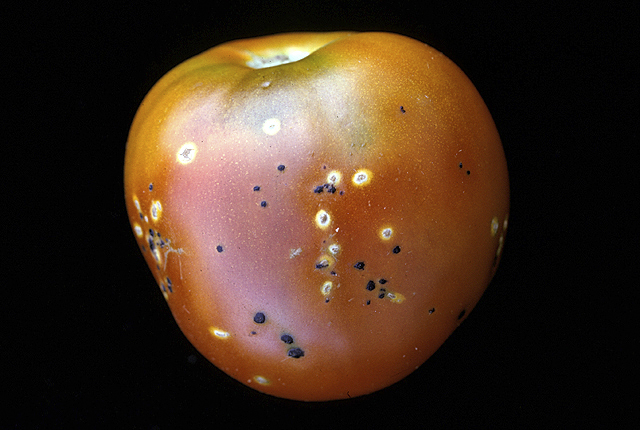
Bacterial canker | Tomato
DISEASE: Bacterial canker
HOST: Tomato (Lycopersicon esculentum)
PATHOGEN: Clavibacter michiganensis subsp. michiganensis
PATHOGEN SYNONYM: Corynebacterium michiganense
SOURCE: M. Schroth
DISEASE: Bacterial fruit rot
HOST: Tomato
Fruit with uneven ripening and internal decay.
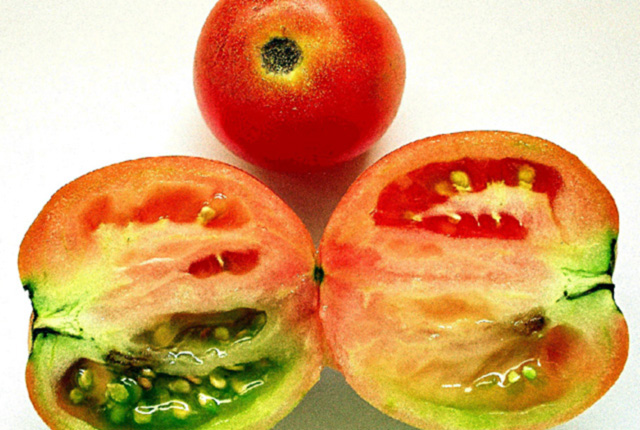
Bacterial fruit rot | Tomato
DISEASE: Bacterial fruit rot
HOST: Tomato (Lycopersicon esculentum)
PATHOGEN: Pseudomonas viridiflava
SOURCE: Y. Aysan
DISEASE: Bacterial fruit rot
HOST: Tomato
Fruit with external symptoms of water-soaking and translucence.
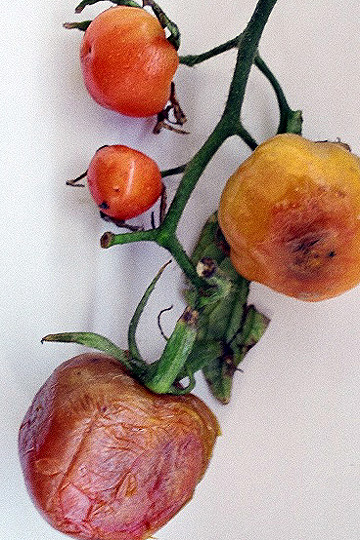
Bacterial fruit rot | Tomato
DISEASE: Bacterial fruit rot
HOST: Tomato (Lycopersicon esculentum)
PATHOGEN: Pseudomonas viridiflava
SOURCE: Y. Aysan
DISEASE: Bacterial soft rot
HOST: Wasabi (Japanese horseradish)
Longitudinal sections of diseased rhizomes with discolored vascular tissues.
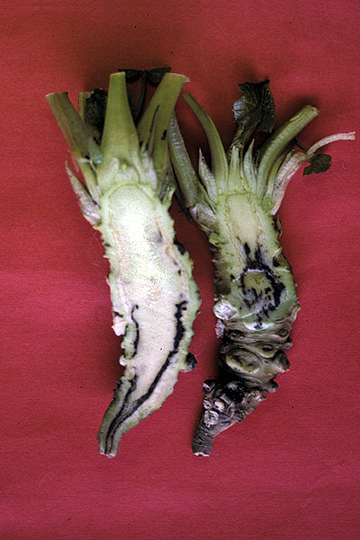
Bacterial soft rot | Wasabi (Japanese horseradish)
DISEASE: Bacterial soft rot
HOST: Wasabi (Japanese horseradish) (Wasabia japonica)
PATHOGEN: Pectobacterium wasabiae
PATHOGEN SYNONYM: Erwinia carotovora subsp. wasabiae
SOURCE: M. Goto
DISEASE: Bacterial soft rot
HOST: Wasabi (Japanese horseradish)
Longitudinal section of rhizome with discolored vascular bundles (left), and rhizome with external symptoms (right).
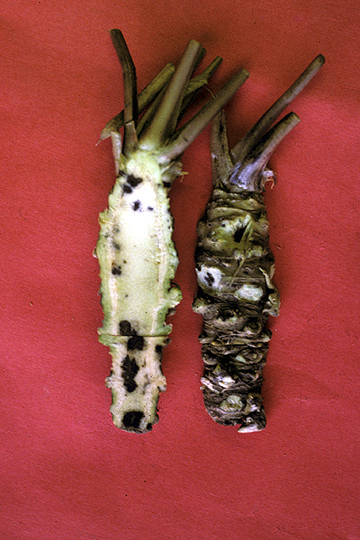
Bacterial soft rot | Wasabi (Japanese horseradish)
DISEASE: Bacterial soft rot
HOST: Wasabi (Japanese horseradish) (Wasabia japonica)
PATHOGEN: Pectobacterium wasabiae
PATHOGEN SYNONYM: Erwinia carotovora subsp. wasabiae
SOURCE: M. Goto
DISEASE: Bacterial soft rot
HOST: Wasabi (Japanese horseradish)
Cross section of rhizome with dark, infected vascular bundles.
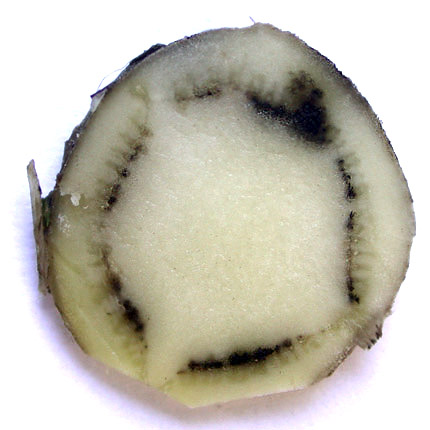
Bacterial soft rot | Wasabi (Japanese horseradish)
DISEASE: Bacterial soft rot
HOST: Wasabi (Japanese horseradish) (Wasabia japonica)
PATHOGEN: Pectobacterium wasabiae
PATHOGEN SYNONYM: Erwinia carotovora subsp. wasabiae
SOURCE: G. Rodriguez
DISEASE: Bacterial speck
HOST: Tomato
Leaf with typical brown to black lesions without halos, an early stage of disease.
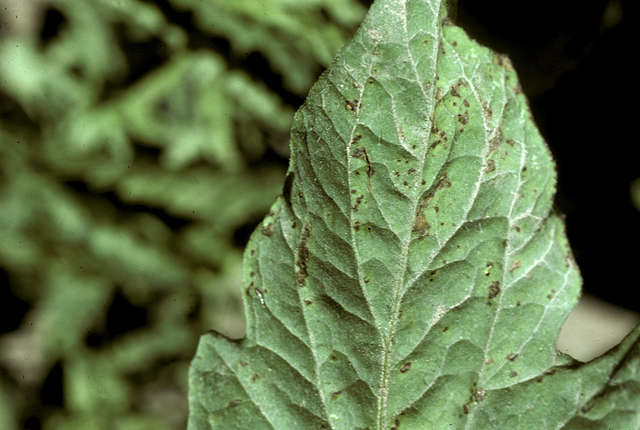
Bacterial speck | Tomato
DISEASE: Bacterial speck
HOST: Tomato (Lycopersicon esculentum)
PATHOGEN: Pseudomonas syringae pv. tomato
SOURCE: S. Thomson


